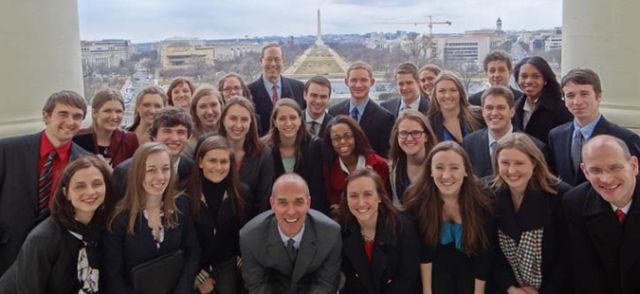Document Type
Article
Publication Date
3-2011
Publication Source
Presidential Studies Quarterly
Abstract
Previous research has found that presidential tickets perform particularly well in a vice presidential candidate's home state when that state is relatively low in population. In this article, we argue that selecting a vice presidential candidate from a small state is not sufficient to produce a large vice presidential home state advantage; rather, state population should matter only insofar as the vice presidential candidate has extensive experience within that state's political system. Analysis of presidential election returns from 1884 through 2008 demonstrates the statistically significant interactive effect of home state population and political experience on the size of the vice presidential home state advantage. The models presented in the article perform much better than models that do not account for this interactive effect.
Inclusive pages
1–17
ISBN/ISSN
0360-4918
Document Version
Postprint
Copyright
Copyright © 2011, John Wiley & Sons
Publisher
John Wiley & Sons
Volume
41
Issue
1
Peer Reviewed
yes
eCommons Citation
Devine, Christopher J. and Kopko, Kyle C., "The Vice Presidential Home State Advantage Reconsidered: Analyzing the Interactive Effect of Home State Population and Political Experience, 1884-2008" (2011). Political Science Faculty Publications. 95.
https://ecommons.udayton.edu/pol_fac_pub/95
Included in
American Politics Commons, Civic and Community Engagement Commons, Demography, Population, and Ecology Commons




Comments
The document available for download is the author's accepted manuscript, provided in compliance with the publisher's policy on self-archiving. Differences may exist between this document and the published version, which is available using the link provided. Permission documentation is on file.
Citation: Devine, Christopher J., and Kyle C. Kopko. 2011. “The Vice Presidential Home State Advantage Reconsidered: Analyzing the Interactive Effect of Home State Population and Political Experience, 1884-2008.” Presidential Studies Quarterly 41(1): 1-17.